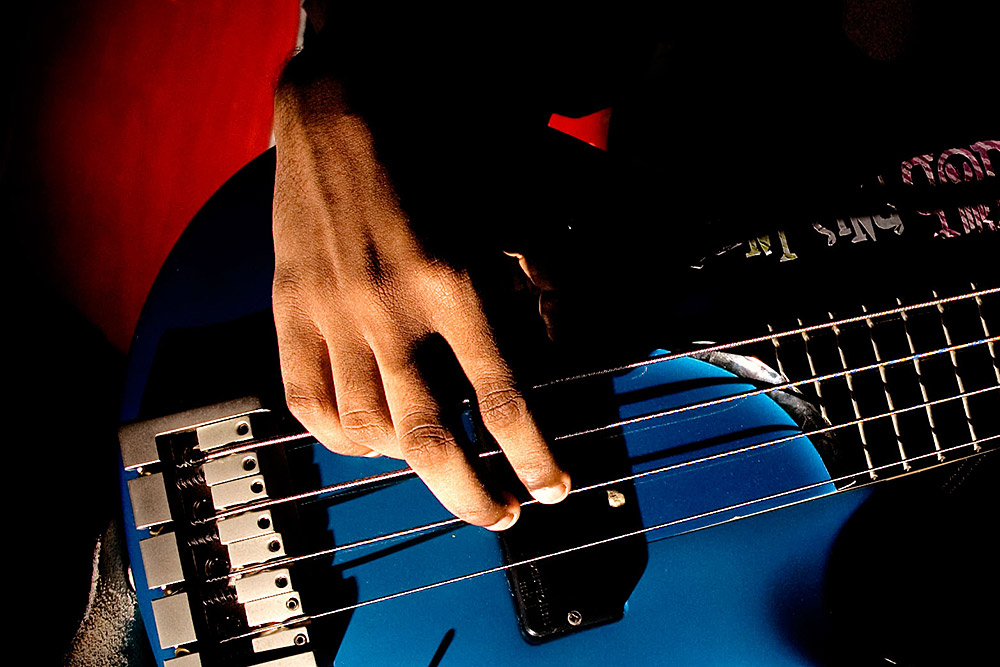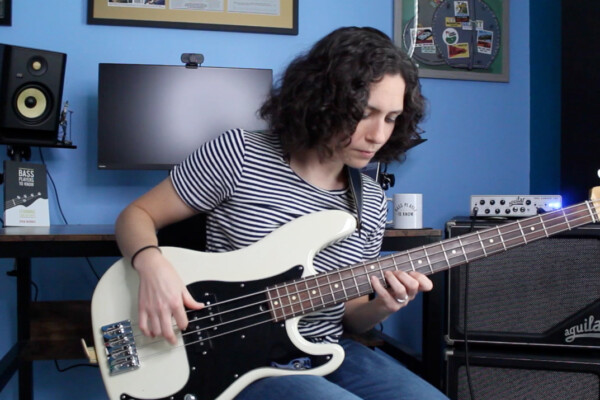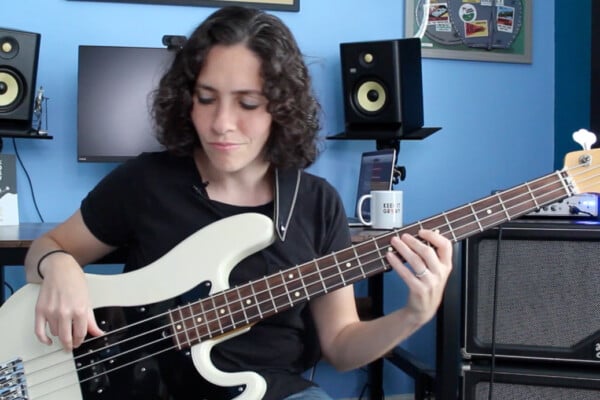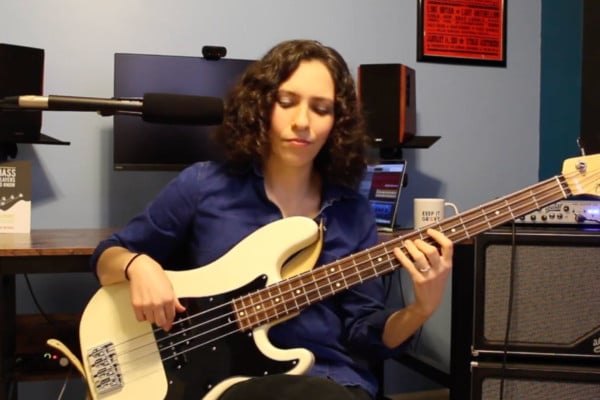What Is It To “Play Compositionally”?

Q: What do you think people mean when they say, “play compositionally”? I’m never sure how to interpret that when I hear or read that.
A: I think that it can mean many different things to different people but, as I interpret it, playing compositionally is really just playing with awareness of the arc of a song and understanding how you can better reflect that arc through your approach to your bases lines.
It’s a level of intention that brings with it a deeper concept of what it is that you are doing as you play a series of notes and how you decide not just which notes, but how and where you place them.
I’m writing this on a flight home from a gig in Atlanta with Gino Vannelli. His gig is a perfect example of having to think compositionally, not just because his arrangements are intricate but because he demands a certain level of intention, musicality and musical awareness that forces one to play with the song in mind.
Some examples of how I approach songs in a “compositional way”:
Sometimes, it’s more about how you play than what you play. Let’s say that you are going to be playing the verse 3 times in a song. Let’s assume that the verse has a fairly well-set bass line. How many ways can you possibly change up what you are doing without potentially playing too much or changing the “hook” of the verse (if the bass line is a large part of the verse)?
Playing a D on the 5th fret of the A string sounds much different than playing it on the 10th fret of the E string and both sound completely different than the open D string. Playing an entire bass line low on the neck, on the thinner strings, can have a drastically different sound than playing it in the middle of the neck, on fatter strings. This can be compounded by slightly changing your plucking hand’s position. Play a C on the A string (3rd fret) with your plucking hand back by the bridge. Now play it on the E string (8th fret) with your plucking hand up by the fretboard. Completely different sound!
Simply changing your plucking technique can bring a new dynamic to a repeated line. palm muting, plucking position, plucking intensity are all great ways to alter the vibe of what you are doing without changing the actual notes.
So, if we have 3 verses in a song, imagine playing the first verse slightly muted and with a low level of intensity. Now play the 2nd verse in the middle of the fretboard, making it fatter but a little more present. Now, play that last verse up in the first 5 frets, plucking fairly hard. The notes will be more pointed and cut more aggressively.
The inverse approach would have a different effect. The effect you go for should be dictated by the song and how big, smooth, jagged, aggressive, languid, the moment wants to be.
And how do those choices work transitionally in and out of those verses to the other sections of the song? How is everything tying together?
This is where those musical instincts and overall musicality come into play. Playing compositionally really just means that you have the arc of the song in your mind and ears. I’ve written quite a bit about the life span of a note (the beginning, middle, and end (or) intensity, articulation and note length). Every note is not created equal in harmony or placement within the beat. Every note is not created equal with regard to articulation and sensitivity to the music around it, either.
If you play every note with the same intensity and phrasing, it will sound much like Siri or Alexa reading a book. Lifeless.
Playing compositionally means that you take that sensibility and apply it the song as a whole, not just the bass line. Shape the longer arc of your playing to reflect the building or waning intensity of the 2nd chorus as opposed to the 3rd. Add complexity or space to reflect why and how each verse is different than the last. Is this the big chorus at the end of the song? How are you playing it differently from the rest? Did your line build/develop in sync with the rest of the song?
It’s not just being able to speak articulately but being able to speak with understanding, awareness, and sensitivity to your musical surroundings.
Have a question for Damian Erskine? Send it to [email protected]. Check out Damian’s instructional books, Right Hand Drive and The Improviser’s Path.



